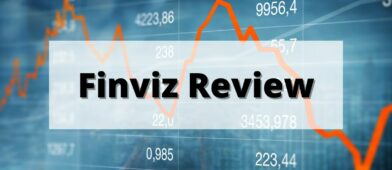If you’re new to investing, you should familiarize yourself with index funds as soon as possible. Index funds are an excellent choice for investors at all experience levels. But they’re especially valuable for beginners since they give you broad exposure to the financial markets without the need to pick and manage individual securities.
So what are the best index funds for beginners? In this article, we’ll provide you with a list of top funds, but first, let’s take a closer look at how index funds work and how they can help your portfolio.
Table of Contents
- What is an Index Fund?
- Index Funds vs. Actively Managed Funds
- Index Mutual Funds vs. ETF Index Funds
- Index Fund Benefits
- Index Funds Drawbacks
- Best Index Mutual Funds
- Fidelity 500 Index Fund (FXAIX)
- Vanguard Emerging Markets Stock Index Fund Admiral Shares (VEMAX)
- Vanguard Total International Bond Index Fund Admiral Shares (VTABX)
- Fidelity U.S. Sustainability Index Fund (FITLX)
- Best Index ETFs
- Vanguard Total Stock Market ETF (VTI)
- SPDR S&P 500 ETF Trust (SPY)
- ProShares S&P 500 Dividend Aristocrat ETF (NOBL)
- Invesco QQQ ETF (QQQ)
- Vanguard Health Care ETF (VHT)
- Vanguard Real Estate ETF (VNQ)
- The Best Ways to Invest in Index Funds
- Final Thoughts
What is an Index Fund?
Much like a mutual fund, an index fund is a pool of individual securities, but one that is based on a specific market index. An index is a composite of a group of stocks in a particular market or sector.
For example, one popular index is based on the S&P 500. Others can be based on the NASDAQ composite, the Dow Jones Industrial Average, or the Russell 2000. There are also more specialized indexes relating to health care, energy, technology, and utilities, etc.
An index fund will mirror the performance of the chosen index. Its portfolio will be comprised of a near-exact mix of the securities in the index. Securities will be traded only when the composition of the index changes.
The investor will have an opportunity to invest in the entire market or a specific sector without having to buy all of the individual securities comprising the index. You can even construct a portfolio of index funds, for example, an S&P 500 index fund, along with smaller allocations into sector funds.
Index Funds vs. Actively Managed Funds
Index funds and actively managed funds are the two broad classes of investment funds available. As described above, index funds are unique because they are based on a popular underlying index.
In actively managed funds, the fund manager will actively buy and sell securities within the fund in an attempt to outperform the market.
The more frequent buying and selling of securities creates a higher turnover ratio. That’s the frequency of security turnover within a portfolio within one year, expressed as a percentage.
For example, an index fund may have a turnover ratio of, say, 7%. That means the fund trades only 7% of the securities within its portfolio in the most recent 12 months.
An actively managed fund may have a turnover ratio of 40% to 80%, indicating securities are routinely bought and sold. Some extremely high turnover funds may even have a ratio over 100%.
The additional turnover of actively managed funds increases the expense ratios within those funds. That’s because the fund incurs additional trading fees and requires more oversight, resulting in more compensation for the fund manager.
One of the major downsides of actively managed funds is that they only manage to outperform index funds about one-third of the time. What’s more, the average annual return on actively managed funds is about 1% below that of index funds.
Index Mutual Funds vs. ETF Index Funds
Historically, most mutual funds were actively managed, while most exchange-traded funds (ETFs) were index funds. While most ETFs still follow an index, there are now hundreds of mutual funds that are also index funds.
Based on performance and expense ratios, there’s little difference between the two. After all, the performance of each is tied to the same indexes. But the main differences between index-based ETFs and mutual funds lie in their characteristics.
For example, ETFs trade just like regular stock shares and can be bought and sold on the stock market throughout the trading day. Also, many brokers allow you to purchase fractional shares of ETFs, which is a slice of one whole share. This way, you can invest small amounts of money in a large number of funds.
By contrast, mutual funds are often sold at specific dollar minimums. You may be required to invest a minimum of, say, $1,000, $3,000, or $5,000, depending on the fund. Mutual fund trades are settled once per day, at the end of the trading day, making them slightly less liquid than ETFs. However, since most index funds are bought and held for the long term, high-frequency trading isn’t usually an important factor.
Index Fund Benefits
Index funds are a good choice for nearly all investors, including beginners.
Some of the advantages include:
- The ability to buy and sell low-cost ETFs, just like company stocks.
- You can start investing with just a few dollars and spread a small amount of money across multiple funds.
- Index funds eliminate the need to pick individual securities.
- They reduce the need for active portfolio management, including buying and selling individual securities.
- Because they can track the entire market, index funds are an excellent choice for long-term savings goals, like retirement.
- You don’t need to know much about investing to get started.
Newer investors can use index funds as an introduction to investing. Once you are comfortable with the overall investment process, you can branch out and start trading individual securities if you want to.
Index Funds Drawbacks
Despite their many advantages, index funds have a few shortcomings:
- Since an index fund is tied to the underlying market, it will never outperform it.
- You can spend years investing in index funds without learning how to invest.
- While index funds are considered less risky than actively managed funds or investing in individual stocks, you can still lose money in them.
None of those reasons are enough to completely avoid index funds, and over the long run, the advantages far outweigh the disadvantages.
Best Index Mutual Funds
As mentioned earlier, index funds are available in both mutual funds and ETFs. Below is a list of four of the most popular index-based mutual funds in the U.S.
Fidelity 500 Index Fund (FXAIX)
Underlying index: S&P 500 Index
Performance: 1-year: -7.74%; 3-years: 18.59; 5-years: 11.18%; 10-years: 12.23%
Expense ratio: 0.015%
Assets under management (AUM): $381 billion
The S&P 500 Index is one of the most widely tracked indexes, and FXAIX is one of the biggest mutual funds based on that index. The fund was launched in February 1988, making it one of the better-established index funds as well.
Though the one-year performance is negative, the fund is up 7.09% year-to-date (as of April 12, 2023). Investing in an S&P 500 Index fund, like FXAIX, is an easy way to invest in large-cap stocks since the index represents the largest publicly traded companies in the U.S.
Vanguard Emerging Markets Stock Index Fund Admiral Shares (VEMAX)
Underlying index: FTSE Emerging Markets All Cap China A Inclusion Index
Performance: 1-year: -9.13%; 3-years: 9.48%; 5-years: -0.06%; 10-years: 2.18%
Expense ratio: 0.14%
AUM: $95.3 billion
As an index fund tied to global emerging markets, VEMAX invests in stocks of companies located in rising markets, including China, India, Taiwan, Brazil, and Russia. Because these are emerging markets, they’re often expected to provide higher long-term profits than more established markets, even though that has not been the case over the past decade or so.
VEMAX is a Vanguard Admiral Shares fund, which requires a minimum investment of $3,000. However, the fund is also available in ETF format, with no minimum required investment.
The fund was launched in June 2006 and has a year-to-date return of 3.55% through April 12, 2023.
Vanguard Total International Bond Index Fund Admiral Shares (VTABX)
Underlying index: Bloomberg Global Aggregate ex-USD Float Adjusted RIC Capped Index (USD Hedged)
Performance: 1-year: -5.11%; 3-years: -2.74%; 5-years: 0.28%; 10-years: N/A; since inception, May 31, 2013: 1.91%
Expense ratio: 0.11%
AUM: $82 billion
VTABX is a bond index mutual fund specializing in investment-grade bonds issued by entities outside the U.S. There are nearly 7,000 bonds held in the fund, with just 6.7% issued in emerging markets, and most of the rest in developed markets in Europe, the Pacific, and North America.
The fund was launched in May 2013 and currently has a 30-day SEC yield of 2.97%. Though the fund has had a dismal performance over the past several years, it returned 3.41% year-to-date as of April 12, 2023.
Like VEMAX, VTABX is an Admiral Shares fund with a minimum initial investment of $3,000; however, it has an ETF counterpart with no minimum required investment.
Fidelity U.S. Sustainability Index Fund (FITLX)
Underlying index: MSCI USA ESG Index
Performance: 1-year: -8.41%; 3-years: 18.18%; 5-years: 11.41%; 10-years: N/A; since inception, May 9, 2017: 11.85%
Expense ratio: 0.11%
AUM: $2.18 billion
The FITLX fund gives you an idea of exactly how diverse the selection of index funds is. But if you’re looking to invest in a portfolio of companies with a strong track record of sustainability, this could be the fund for you. The fund invests in large- and mid-sized companies with high ratings on environmental, social, and governance (ESG) performance.
The fund has a respectable long-term performance, going back to its inception in 2017, but it also returned 7.32% through April 12, 2023, on a year-to-date basis.
Best Index ETFs
Index funds are more commonly traded as ETFs vs. mutual funds. Below is a list of several popular index-based ETFs.
Vanguard Total Stock Market ETF (VTI)
Underlying index: CRSP US Total Market Index
Performance: 1-year: -8.85%; 3-years: 18.34%; 5-years: 10.35%; 10-years: 11.68%
Expense ratio: 0.03%
AUM: $1.2 trillion
Launched in May 2001, the VTI is an index ETF that tracks virtually the entire U.S. stock market, which currently includes 3,945 companies. It may be the single best fund to invest in the entire U.S. market and can be found in the portfolios of both robo-advisors and investment advisors alike.
The fund has a year-to-date return of 6.55% (through April 12) and a near-non-existent expense ratio of just 0.03%.
SPDR S&P 500 ETF Trust (SPY)
Underlying index: S&P 500 Index
Performance: 1-year: -7.45%; 3-years: 18.45%; 5-years: 11.04%; 10-years: 12.10%
Expense ratio: 0.945%
AUM: $371 billion
Issued by State Street Global Advisors (SSGA), the SPY may be the most popular index fund based on the S&P 500. The fund was launched in January 1993 and has a lifetime average annual return of 9.71%. That includes a year-to-date return of 7.48% through April 12, 2023.
Consistent with the S&P 500, SPY holds stock in 503 of the largest corporations in America. That includes Apple, Microsoft, Amazon, NVIDIA, Alphabet (Classes A and C), Berkshire Hathaway, UnitedHealth Group, Tesla, and Meta Platforms (Facebook). Not surprisingly, information technology makes up more than 25% of the fund’s holdings.
ProShares S&P 500 Dividend Aristocrat ETF (NOBL)
Underlying index: S&P 500 Dividend Aristocrats Index
Performance: 1-year: -1.91%; 3-years: 19.01%; 5-years: 10.32%; 10-years: N/A; since inception, October 9, 2013: 11.34%
Expense ratio: 0.35%
AUM: $11.1 billion
NOBL is another specialized index fund, one that focuses on a small number of blue-chip companies. In that way, it functions as something of a growth and income fund. NOBL invests in approximately 64 companies (the exact number changes from time to time) in the S&P 500 that have track records of not only paying dividends regularly but also increasing them consistently for at least the past 25 years.
NOBL provides regular income with a current dividend yield of 2.46%. But given the size and success of the companies in the fund, it also offers solid potential for capital appreciation.
Invesco QQQ ETF (QQQ)
Underlying index: NASDAQ 100
Performance: 1-year: -10.35%; 3-years: 20.00%; 5-years: 15.96%; 10-years: 17.95%
Expense ratio: 0.20%
AUM: $170 billion
QQQ is another highly specialized index-based ETF. Its performance is tied to that of the NASDAQ 100, which are the 100 largest companies on the NASDAQ exchange. Since the NASDAQ features a larger number of upstart companies than the S&P 500, including 100 of the most innovative companies in America, its performance has outpaced the S&P 500 index in nine of the past ten years.
As you might expect, the fund includes a high percentage concentration in information technology, which represents 49% of the fund. Overall, the fund represents a large share of the fastest-growing large companies in America.
Despite the negative one-year performance, the fund is already up year-to-date through April 12 by an impressive 20.77%.
(Author disclosure: I have a position in QQQ.)
Vanguard Health Care ETF (VHT)
Underlying index: MSCI US Investable Market Health Care 25/50 Index
Performance: 1-year: -4.98%; 3-years: 14.33%; 5-years: 10.84%; 10-years: 12.69%
Expense ratio: 0.10%
AUM: $19.3 billion
VHT is yet another example of the many different indexes mutual funds, and ETFs can be tied to. In the case of VHT, the fund tracks the performance of the MSCI US Investable Market Health Care 25/50 Index, which includes companies engaged in biotechnology, healthcare distribution, equipment, facilities, services, and supplies.
It also includes positions in health care technology, life sciences tools, and services, managed health care, and pharmaceuticals. The fund will provide complete exposure to the entire healthcare sector. VHT was launched in January 2004 and includes shares in 412 companies.
Vanguard Real Estate ETF (VNQ)
Underlying index: MSCI US Investable Market Real Estate 25/50 Index
Performance: 1-year: -20.15%; 3-years: 9.87%; 5-years: 5.80%; 10-years: 5.78%
Expense ratio: 0.12%
AUM: $65.1 billion
Yes, you can even invest in real estate through an index-based ETF. The VNQ is a popular choice for portfolio inclusion by robo-advisors to give investors exposure to real estate. The fund invests in a wide variety of real estate-related entities, including real estate investment trusts (REITs), mobile operators, public storage facilities, and real estate development and operating companies. In all, the fund holds 166 stocks.
Despite the large one-year loss, the fund has returned 1.23% year to date through April 12.
The Best Ways to Invest in Index Funds
There are three primary ways to invest in index funds: 1) directly through a “fund family,” 2) through an online broker, or 3) within a portfolio managed by an online, automated investment management service, commonly referred to as a robo-advisor.
Fund Families
Fund families are investment companies that offer their own mutual funds and ETFs directly to investors. Examples include Vanguard, Fidelity, and iShares.
Fund families are a good choice if you plan to buy and hold funds forever. The disadvantage is that you may be limited only to funds issued by the company. There may not be options for other funds or investments, like individual stocks and bonds.
Investment Brokers
Investing in index funds through brokers offers greater flexibility than fund families because they offer many different investments. Unlike fund families, they offer investments in index funds commission-free.
Ally Invest is on our list of the best investment apps. It’s a great example of an investment broker that offers a wide variety of index funds, as well as stocks, bonds, and other investments – most commission-free.
SoFi Invest® also offers commission-free index ETFs, as well as stocks and cryptocurrencies. SoFi® is also a diversified financial company where you can get insurance and loans, in addition to various investment options.
E*TRADE has grown into one of the more popular investment brokers. They offer a wide variety of funds in addition to stocks and other investments. Index funds can be purchased commission-free.
Robo-Advisors
Robo-advisors not only provide comprehensive investment management at very low fees, but they usually employ index ETFs in their portfolios. This ensures you have the right mix of funds for your risk tolerance and investment goals without having to choose your own.
Betterment is one of the most popular robo-advisors, and for good reason. They not only invest your portfolio in index funds but value-related funds. Those are funds composed of stocks in companies that have been largely overlooked by the general market, despite being fundamentally strong. Value stocks have been shown to outperform the general market over many time frames in the past.
Wealthfront works similarly to Betterment in that they invest your portfolio in a mix of index-related ETFs. They offer a very low initial investment minimum, as well as a low flat management fee across all portfolio sizes.
Final Thoughts
If you’re new to investing, index funds should make up most or all of your portfolio because they take the guesswork out of choosing the right funds. As your portfolio and your confidence grow, you may begin branching out to other investments, like individual stocks.
If you’re like most investors, you’ll want to maintain a solid foundation of index funds in your portfolio as you become a more seasoned investor. After all, a mix of index funds and individual stocks can prove to be a powerful investment strategy.


